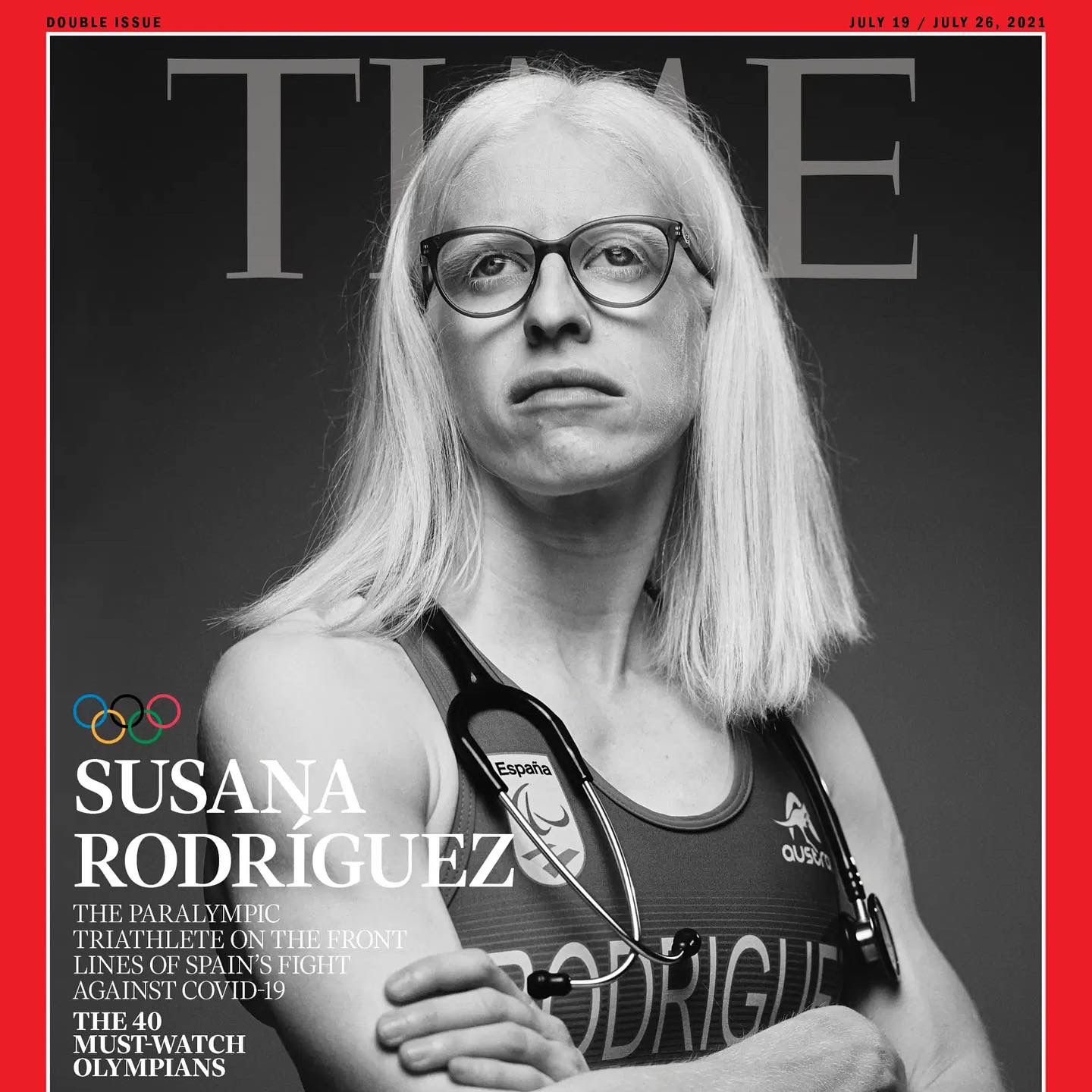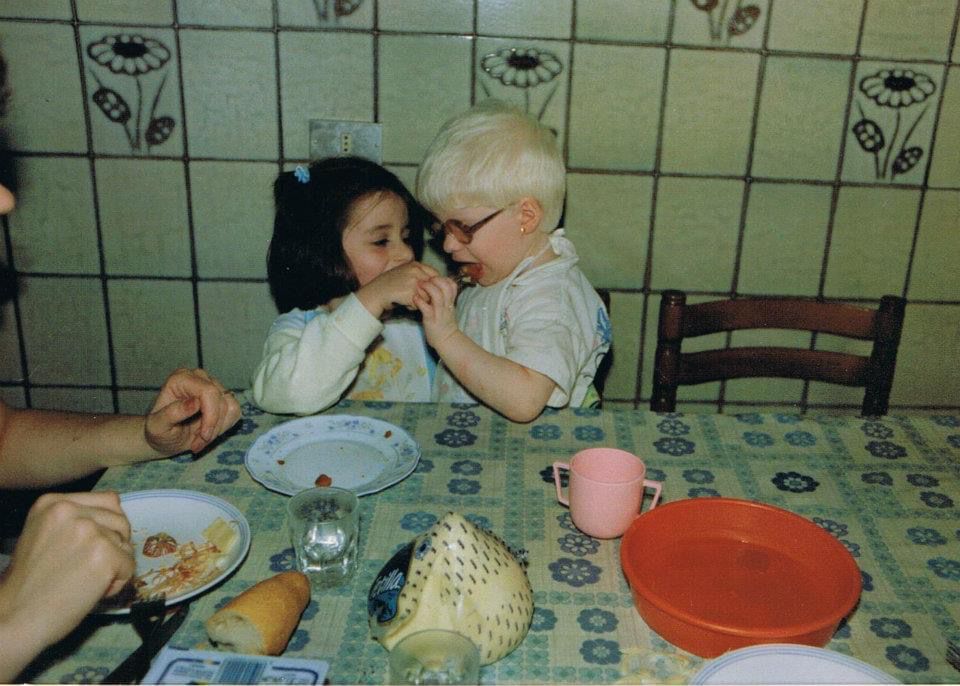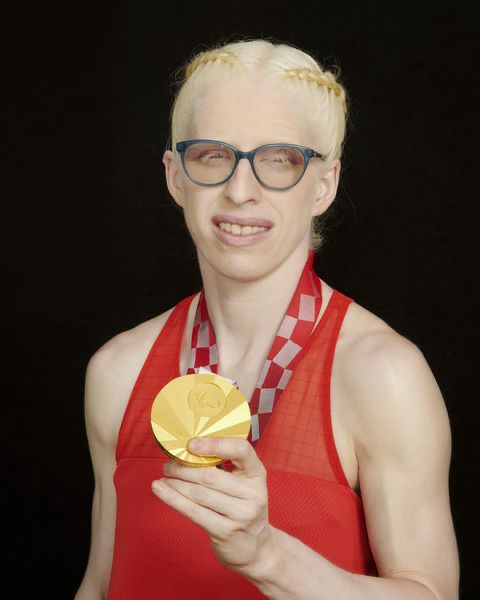“Educating about albinism leads to respect”
For Susana (Vigo, 1988), combining her two passions: sport and medicine, has led her to be on the cover of the American magazine “Time” in July 2021, before winning gold in Tokyo.
Her visual impairment, due to her condition as a person with albinism, has never been an impediment to trying to surpass her goals; trying again and again, without help, is what has generated her eagerness to fight in any of the fields in which she is involved. She is convinced that the best way to help people with disabilities is to give them freedom.
We had the opportunity to talk to her about her medium-term plans, what it means to be a person with albinism in Spain and her commitment to Beyond Suncare.
B.S: You have just won the Paralympic gold medal in adapted triathlon in Tokyo, you are 4 times world champion and two times European champion, not to mention the silver and bronze medals that you have in your record… your visual limitations have never been an impediment to reach all the goals you have set for yourself, what is your next goal in the sports field?
S.R: My next sporting goal is already in 2022 where I will try to be fighting for the medals at the World Athletics Championships in Kobe (Japan) and also at the World Triathlon Championships that will take place in Abu Dhabi.
Also, together with one of my sponsors, I am going to participate in a project to create a sports club that will be based in Vigo, my city, where we will also have an athletics school for children with and without disabilities.
B.S: What does sport involve in your daily life, what challenges do you have to face?
S.R: Sport today is my job and my hobby because it is something I enjoy. The most important challenge is to always work to improve as an athlete. Triathlon is a very complete sport and there are always details to perfect in its three disciplines.
B.S: At what point in your life did you decide that you wanted to pursue a career in sport?
S.R: I can’t say that there is a specific moment…. Everything came and happened little by little…
B.S: You first graduated in physiotherapy and then studied medicine, what made you do it?
S.R: I was always interested in health sciences. My father is a doctor, an anaesthetist; I could see that he liked his work and that he spoke about it with satisfaction.
B.S: During the COVID19 confinement you worked as a doctor, how did you experience those months?
S.R: Like everyone else, I lived them with a lot of uncertainty. There came a time when touching objects and surfaces seemed very dangerous and terrible… and this was difficult for a person with a severe visual impairment like me.
B.S: What is your support, your source of energy to overcome difficulties?
S.R: Experience tells me that after the storm comes the calm. My energy consists of giving everything I can to solve any problem.
B.S: What was it like growing up as a person with albinism in Spain, was it easy for you?
S.R: I grew up normally; in my family my sister and I were always treated the same and having a disability was never an excuse not to do things. It is clear that sometimes being physically different is not easy but for me it was normal, I don’t know anything else and therefore I don’t think too much about it. I like being like this and I wouldn’t change.
B.S: You are an ambassador for Beyond Suncare, how did you get to know the NGO, what motivated you to collaborate with us?
S.R: I’ve known about Mafalda Soto’s activity for years, and she is also Galician. I have a lot of requests to collaborate with different solidarity projects and my time is limited, so I wanted to be close to a project that I could identify with.
B.S: What can be done to improve the quality of life of persons with albinism both physically and mentally
S.R: The most important thing is education, making society aware of albinism. This leads to more respect and everything else comes by itself, it becomes easier.
B.S: Do you think that albinism is still an unknown genetic condition in Spain, and are we sufficiently aware of it?
S.R: I think it is still unknown. It is clear that a lot of progress has been made in recent years, but we must always aspire to improve.




